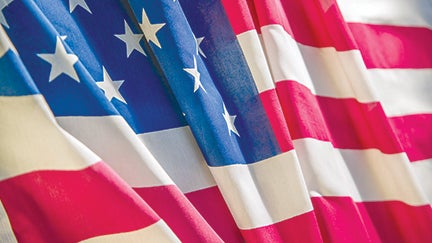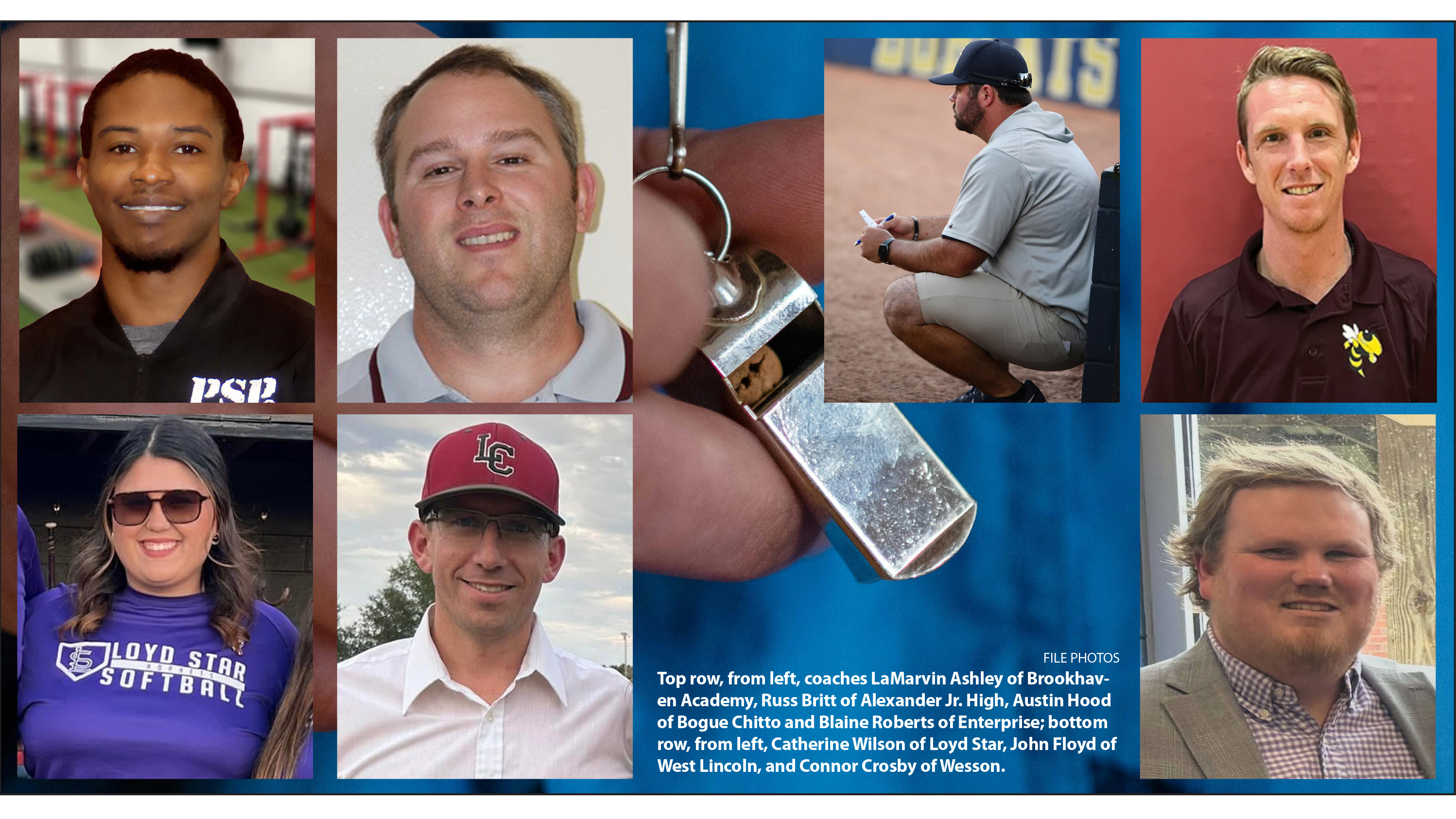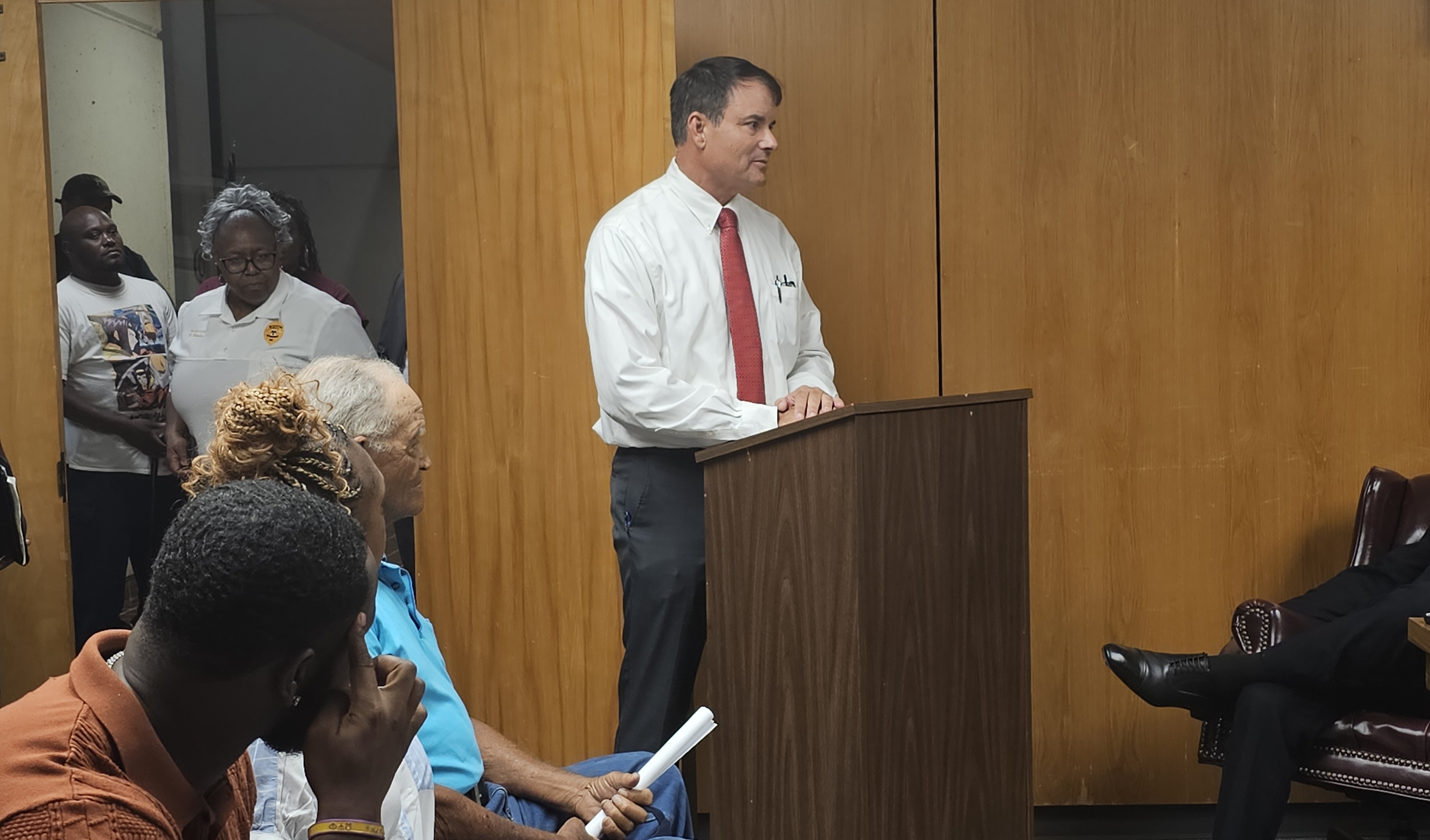What does Freedom of Religion mean to you?
Published 11:39 pm Friday, January 12, 2018

- American flag banner
This is part of a series of stories about protections guaranteed by the First Amendment.
We aren’t supposed to do it, but we do.
Here in Mississippi, we are raised to do it. We don’t take kindly to anyone trying to stop us. Sometimes judges and lawyers representing one acronym or another frown at us from afar, and we play along while they’re looking. Then we go right back to doing it anyway.
We pray. Not just us as individuals, but as local governments. Even though the nation’s courts have ruled government-sponsored prayer violates the First Amendment’s Establishment Clause, it still happens in our schools and local government meetings. We’d throw everyone out of office if it didn’t.
But that’s not what freedom of religion is, at least not in the eyes of the First Amendment.
Freedom of religion, as established by the First Amendment, protects people of any faith — or no faith — from persecution or influence from a faith they don’t want. If a mayor or a supervisor or a football coach leads a prayer, their positions of authority naturally convey influence and could lead someone who doesn’t share their faith to feel pressured, shamed or left out.
For that reason, a school official does not have the right to lead a prayer in an assembly in which students are forced to attend. The Rankin County School District ran into trouble back in 2013, when a student complained her school promoted Christianity at assemblies where her attendance was mandatory. The district settled the lawsuit and promised to cease religious promotion, then got right back in trouble in 2015 for the same thing and was fined $7,500 by a U.S. District Court.
Mississippi may be the most Christian state in the union, and we often shout that “freedom of religion” means we get to practice our faith openly. We do, of course. There are no laws or rulings that prohibit students from praying in school, forming organizations of faith, holding devotionals or attempting to convince others of their beliefs. But it has to be personal, not sponsored by the school.
It hasn’t always been so clear. In 1995 President Bill Clinton had to call timeout on over-zealous attempts to control expressions of faith in schools:
“As our courts have reaffirmed, however, nothing in the First Amendment converts our public schools into religion-free zones, or requires all religious expression to be left behind at the schoolhouse door. While the government may not use schools to coerce the consciences of our students, or to convey official endorsement of religion, the government’s schools also may not discriminate against private religious expression during the school day.”
Bette Dixon has a firm grasp on the subject. The 71-year-old retired schoolteacher said the First Amendment means worshipping anywhere, any time, however and with whomever she wants.
“I don’t think prayer should be wiped out of our schools. The same goes for children of different faiths,” she said. “That’s the point of freedom of religion.”
Lincoln County’s Thomas Howard, 83, is far less inclusive in his views of the First Amendment. The self-identified Baptist said the Christian God is the nation’s only answer.
“I’m firmly in favor of prayer in school. People of other religions have their beliefs, and I have mine,” he said. “They have their rights, just like I have mine. But I don’t think they should deprive us of having prayer in school, whether it offends them or not.”
James King is 21 years old. Like most youth today, his views are more open and — in the spirit of the First Amendment — correct.
“I think prayer in school should be allowed, but I don’t believe everybody should be forced. It’s strictly if you want to,” he said. “As long as somebody else’s beliefs aren’t being forced on me, you do it the way you want to, and I’m fine with it.”
The rules aren’t as tight for law-making bodies. The Supreme Court has long respected the tradition of state legislatures opening sessions with prayer, and in November declined to hear a case in Texas accusing a school district of violating the First Amendment for allowing students to address the board with prayer during regular meetings.
In 2014, the high court also established the “Town of Greece” precedent regarding prayer at local government meetings. The ruling says those prayers adhere to the tradition established for state legislatures, allowing prayer by government bodies who do not coerce attendants to participate and do not discriminate against minority faiths by determining who may offer a prayer.
The “Town of Greece” ruling would be hard to test in Southwest Mississippi. It’s difficult to really understand freedom of religion when the only differences in people’s faith are the kind of music they play on Sunday mornings.
According to the 2010 Census, the Magnolia State is 83 percent Christian, and most of the missing 17 percent is unaffiliated. Non-Christian faiths comprise just 2 percent of the population.
The easiest way to see if local government boards adhere to “Greece” would be to observe their reaction to someone of a non-Christian faith requesting to pray before a meeting is gaveled in. In all likelihood, the board would skip prayer and never bring it up again.
But what if Lincoln County suddenly contained a religious minority large enough to get involved? As God-fearing Mississippians, we don’t believe that will happen. But it’s 2018. Anything is possible.
According to the Migration Policy Institute, the U.S. took in 18,000 Syrian refugees between 2011 and 2017. Canada took in 40,000 Syrians in 2016, and 4.9 million more are living in first-asylum countries. President Donald Trump halved the maximum number of refugees allowed in any year and banned immigration from several Muslim majority countries, including Syria.
But Trump won’t be president forever. Who’s to say the 46th president won’t feel tremendous sympathy toward Syrian or other refugees, as the rest of the world pressures the U.S. government to do? What if the outbreak of a new war necessitates entire populations be moved quickly out of harm’s way? Where in the U.S. could they be settled?
There’s lots of unused space up around Caseyville. Cut down a few acres of national forest and a comfortable camp could be set up easily.
What if 25 Muslim mothers show up at the Lincoln County School Board 10 years from now and take issue with the board asking everyone to bow their heads and close their eyes?
That scenario is a little far-fetched. But regardless of refugees, the dominance of Christianity in America is slowing down.
Last September, the Public Religion Research Institute polled more than 100,000 people and found 43 percent of Americans identify as Christians. In 1976, it was 81 percent.
Of course, Lincoln Countians are Christians, raised by Christians, and their descendants will probably be Christians, too. But tomorrow’s Lincoln County Christians may not be in the majority.
Freedom of religion doesn’t just exist so the one non-Christian student in every school district can ruin it for everyone else.
It exists to protect the Christian of tomorrow, who very well may be the one in the audience at the board meeting, a generation from now, raising his or her hand and asking permission to say a prayer to the Savior of their ancestors.
Daily Leader staff writer Trapper Kinchen contributed to this story.




